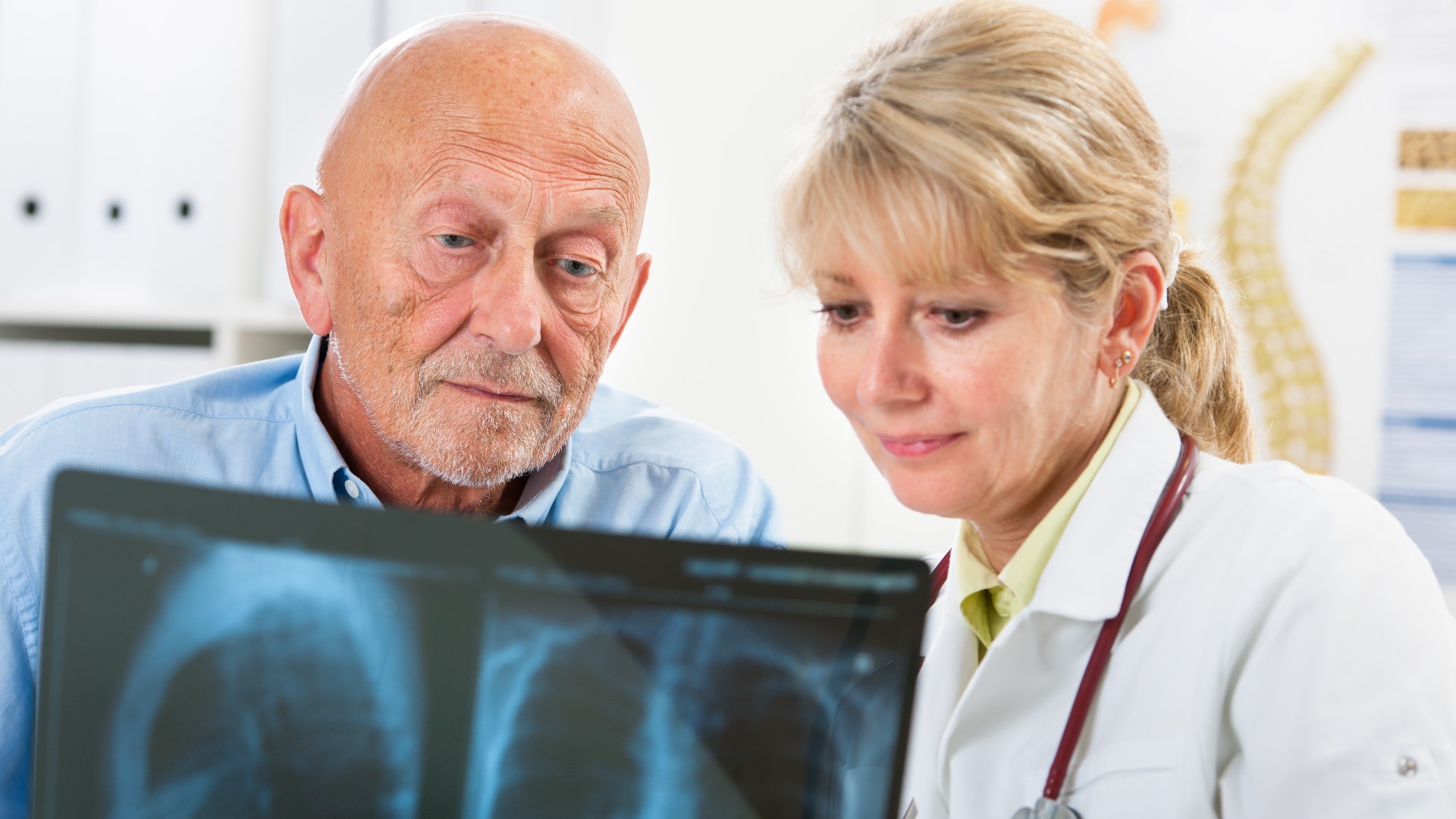SEATTLE — November is Lung Cancer Awareness Month, and it's never too early to become familiar with the signs and symptoms. It is important to understand who is at risk and why annual screenings are so crucial.
"It's the second most common cancer, but the number one cancer killer," said Dr. Steve Kirtland of Virginia Mason. "There are symptoms that one should be aware of -- protracted cough, coughing up blood, things that one should see the doctor about. But unfortunately, a lot of times it's found incidentally."
His patient, Jim Hayner, is currently battling lung cancer and didn't feel any symptoms prior to being diagnosed.
"I was in for a look at a kidney stone. When they discovered a growth of a tumor in my lung," Hayner explained. "I immediately put my life in the hands of Virginia Mason, a team of five fantastic doctors who have kept me alive for now about five years."
One reason lung cancer is such a big killer is because it is often not detected until the late stages. To help prevent this, Dr. Kirtland suggested that people should be checked often.
"Those folks who are either currently smoking or recently stopped within the last 15 years and have enough smoking burden should go see their doctor and should get an annual CAT scan. It's not a one and done."
The average age of lung cancer diagnosis is about 70 -- although it can be detected at 55, or in rare cases, as low as 30. Age and personal smoking habits are not the only factors that can put people at risk. According to Dr. Kirtland, a family history of smoking and occupational exposure to asbestos, nickel and radon also play a role.
"And we're learning more and more about both indoor and outdoor air pollution," said Dr. Kirtland.
Once lung cancer is detected, there are many options for treatment. Medical advancements have allowed for more treatments for late-stage cancer as well. Kirtland explained that there are therapies, molecular targeted medicine, and immunotherapy which stimulate the immune system.
"You have natural killer T cells, which as we age wane a bit. [Immunotherapy] is going in and stimulating them again to use your own natural body's resources to fight cancer," said Dr. Kirtland. "There's localized radiation therapy and even surgical therapy [...] We're now doing robotic surgery. Patients are typically in the hospital now just two nights."
After going through immunotherapy, Hayner's tumor reappeared causing him to try many of the other treatment techniques.
"I haven't experienced anything that in any way disabled me. I don't have symptoms after chemotherapy or immunotherapy or radiation therapy. I just move forward with my life and I'm optimistic about it," said Hayner.
Hayner is currently undergoing targeted radiation in the hopes that it will shrink the remaining tumors. He hasn't had to change his lifestyle and has a great relationship with his medical care team.
"I think a lot of this is attitude and a positive attitude is something that is really, really supported well by the team at Virginia Mason. So I feel good."
To book a lung cancer screening doctor's appointment or for more information about ongoing clinical trials, please visit Virginia Mason's website.
Sponsored by Virginia Mason. Watch New Day Northwest 11 AM weekdays on KING 5, and streaming live on KING5.com. Connect with New Day via Facebook, Twitter, Instagram.

